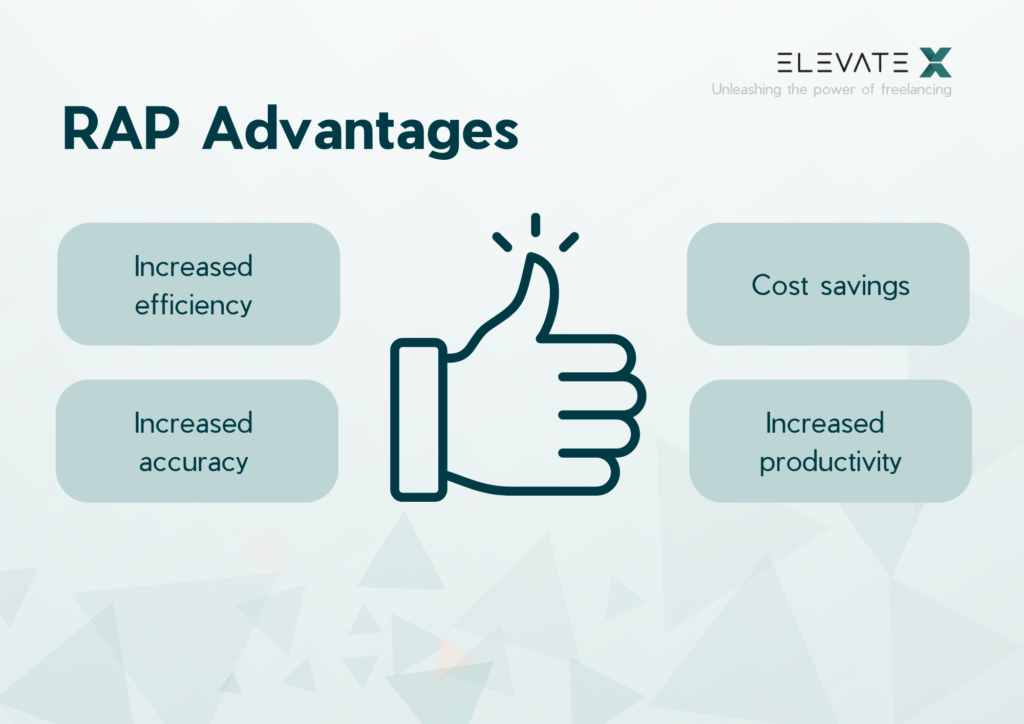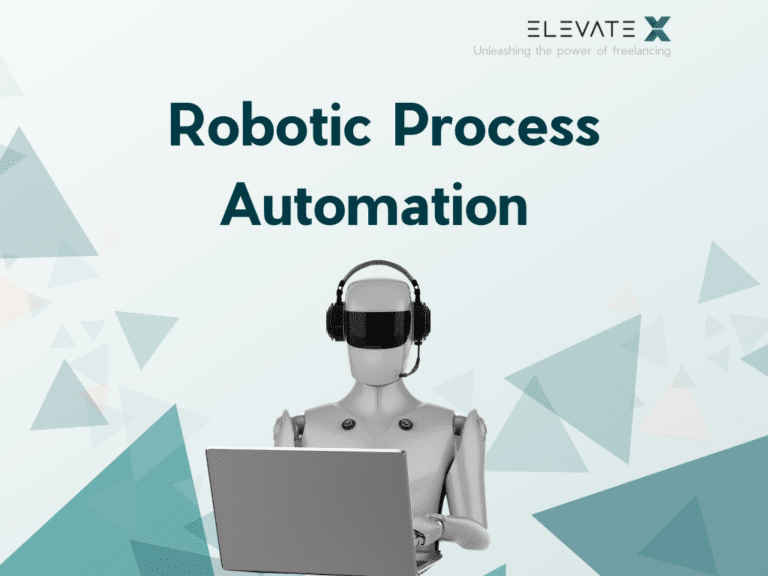In today’s digital world, automating business processes is a crucial factor for the success of companies. Robotic Process Automation (RPA) is a technology that helps automate routine tasks in businesses. In this blog post, we will explain what RPA is, how it works, what benefits it offers, and how it differs from other forms of automation.
What Is Robotic Process Automation (RPA) And How Is It Defined?
RPA is a technology that enables the automation of business processes through the use of software robots. These software robots can mimic human activities on a user interface, thus automating routine tasks. RPA is defined as “the use of software robots to automate the execution of business processes normally performed manually by humans.”
KEY POINTS
- In today’s business world, process automation is crucial for the success of companies.
- RPA (Robotic Process Automation) is a technology that automates routine tasks in businesses by deploying software robots to mimic human activities.
- RPA offers a variety of benefits, including increased efficiency, accuracy, cost savings, and productivity. These advantages can be realized across various industries and business sectors.
What Are The Benefits Of RPA For Businesses?
RPA offers a range of benefits for businesses, including:
- Increased efficiency: RPA can significantly reduce the time required to perform routine tasks.
- Increased accuracy: RPA can reduce the error rate in performing routine tasks.
- Cost savings: RPA can significantly reduce the costs of performing routine tasks.
- Increased productivity: RPA can increase employee productivity by freeing them from routine tasks.

How Does RPA Work And What Types Of Tasks Can It Automate?
RPA works by using software robots that mimic human activities on a user interface. These software robots can automate a variety of tasks, including:
- Data processing: RPA can collect and process data from various sources.
- Data transfer: RPA can transfer data between different systems.
- Data verification: RPA can check data for errors and inconsistencies.
- Data reporting: RPA can create reports and analyses.
Which Industries And Business Areas Benefit Most From RPA?
RPA can be used in a variety of industries and business areas, including:
- Financial services: RPA can assist in transaction processing, risk monitoring, and compliance.
- Healthcare: RPA can assist in patient data processing, billing, and compliance.
- Retail: RPA can assist in order processing, inventory management, and billing.
- Manufacturing: RPA can assist in order processing, inventory management, and quality assurance.
Find qualified Robotic Engineers
What Are The Key Tools And Platforms For RPA?
There are a number of tools and platforms that can be used for RPA, including:
What Are The Main Challenges And Risks In implementing RPA?
There are a number of challenges and risks to consider when implementing RPA, including:
- Integrating RPA into existing systems and processes.
- Ensuring the quality and reliability of RPA.
- Ensuring compliance of RPA with regulations and standards.
- Ensuring the scalability of RPA.
- Ensuring user acceptance of RPA.
How Does RPA Differ From Other Forms Of Automation, Such As Artificial Intelligence (AI) And Machine Learning (ML)?
RPA differs from other forms of automation, such as artificial intelligence (AI) and machine learning (ML), in that it focuses on automating routine tasks, while AI and ML focus on automating decision-making processes.
What Are Some Successful Use Cases Of RPA In Practice?
There are a number of successful use cases of RPA in practice, including:
- Automating invoicing at a large telecommunications company.
- Automating customer service at a large financial services provider.
- Automating inventory management at a large retailer.
- Automating quality assurance at a large automotive manufacturer.
What Are The Future Prospects For RPA And How Will The Technology Evolve?
The future of RPA is promising. The technology is expected to continue growing in the coming years as more and more companies recognize the benefits of RPA. The technology will also evolve to be able to automate more complex tasks.
Conclusion
RPA is a technology that enables the automation of business processes through the use of software robots. It offers a range of benefits for businesses, including increased efficiency, accuracy, productivity, and cost savings. Furthermore RPA can be used in a variety of industries and business areas, and there are a number of tools and platforms that can be used for RPA. There are a number of challenges and risks to consider when implementing RPA, but there are also a number of successful use cases of RPA in practice. The future of RPA is promising and the technology will continue to evolve to be able to automate more complex tasks.
RPA is a technology that enables the automation of business processes by utilizing software robots. These software robots can mimic human activities on a user interface, thus automating routine tasks. RPA is defined as ‘the use of software robots to automate the execution of business processes that are normally performed manually by humans.
RPA offers a range of benefits for businesses, including:
- Increased efficiency
- Increased accuracy
- Cost savings
- Increased productivity
RPA (Robotic Process Automation) works by utilizing software robots that mimic human activities on a user interface. It can automate a variety of tasks, including:
- Data processing
- Data transfer
- Data validation
- Data reporting








